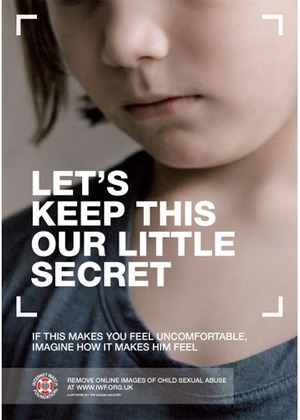Piracy Laws 2.0
The more successful approach as pioneered by iTunes, Steam and other online stores which provide content with relatively light or non-existent DRM is to beat the pirates on the only playing field where they have an even shot – the convenience of operating a fully legal service, and customer service.To pirate a game you have to find it and crack it, that’s going involve the web security equivalent of level five biohazard suit. If a system appears where you can get a game for relatively low price, with non-intrusive DRM, regular patches, updates and other features, then suddenly paying money for the content seems to make sense.
Despite the success of systems such as iTunes and Steam, the fact rampant piracy still occurs and the lack of success the lawyers have had using existing copyright laws when dealing with the web has meant pressure on governments to introduce new, web specific legislation.
A French law proposing the introduction of a a ‘three strikes’ penalty system for Internet users caught downloading illegally was granted final approval the other day. Under the law, Internet users caught downloading illegally will first receive an email, then a letter if they persist, and finally will have their connection to the net cut for a year if they’re caught a third time.
Similarly in New Zealand, anti-piracy measures were brought in via a controversial amendment to its Copyright law. Amendment Number 27 – particularly sections 92A to 92E – created a ‘three strikes’ system similar to that which the French have just introduced, but set very vague criteria for what constituted being guilty of a ‘strike.’ In the face of fierce, yet arguably justified criticism, New Zealand’s government has decided to re-write the country’s entire copyright law.
One of the key problems that scuppered Amendment No. 27 is one that has dogged anti-piracy legislation throughout the world – the fact that judging copyright infringement is extremely difficult, and that there’s a big argument over who should take responsibility for enforcing restrictions.
Who Watches The Internet Watchmen?
 While private industry has been quick to roll up its sleeves and dive into the Internet in order to try to protect itself from piracy, governments have been slow to act in general. Internet censorship in Western Europe and the USA is not something any of us would usually have expected to encounter. If you can still get access to /b/, how censored can the Internet be, right?
While private industry has been quick to roll up its sleeves and dive into the Internet in order to try to protect itself from piracy, governments have been slow to act in general. Internet censorship in Western Europe and the USA is not something any of us would usually have expected to encounter. If you can still get access to /b/, how censored can the Internet be, right?The answer to this was abruptly revealed in December 2008 when a picture link on Wikipedia was found to have been blocked to British users by a group which had previously remained almost completely unknown called the Internet Watch Foundation. This particular incident, in which a picture of a naked under-18 girl on an album cover (Virgin Killer by 80s metal act Scorpions) was blocked from Wikipedia raised alarms for two reasons. Firstly Wikipedia is like the lovechild of Buddha and a sacred cow as far as most web users are concerned and secondly, there was the manner of the blocking. Instead of a sign saying “the IWF has blocked this image”, instead users saw a standard 404 error.
The use of a fake 404 error, which would normally mean that the file has not been found, caused intense suspicion to fall on the IWF. Upon further scrutiny of how the IWF operates it became apparent that it kept its blacklist of blocked sites secret. This looked doubly suspicious to those with a nose for a rat, because, it was argued, who could tell for sure what was being blocked and for what reason if it was all done in secret?
The answer to these questions can be found out simply enough by asking the IWF itself. According to Sarah Robertson, its Director of Communications, for the IWF the limits to the scope of the organisation are clearly defined. She told us that, “the IWF is not a law enforcement organisation, and we don’t deal with anti-piracy or fraud.” The IWF is in fact an independent self-regulatory body, funded by the EU and the web industry, and it acts upon a very simple brief:
“To provide a UK Internet ‘hotline’ for the public and IT professionals to report potentially illegal online content within our remit and to be the ‘notice and take-down’ body for this content. We work in partnership with the online industry, law enforcement, government, the education sector, charities, international partners and the public to minimise the availability of this content, specifically, child sexual abuse content hosted anywhere in the world and criminally obscene and incitement to racial hatred content hosted in the UK.”
You can see one of the IWF's adverts encouraging users to report suspect content above this text. The IWF operates a blacklist of sites, and several large ISPs, including BT, Vodafone, Sky and Virgin Media, use this blacklist to determine what users can access. Once the Wikipedia page was added to the blacklist, it was only a matter of time before it disappeared from sight.

MSI MPG Velox 100R Chassis Review
October 14 2021 | 15:04









Want to comment? Please log in.